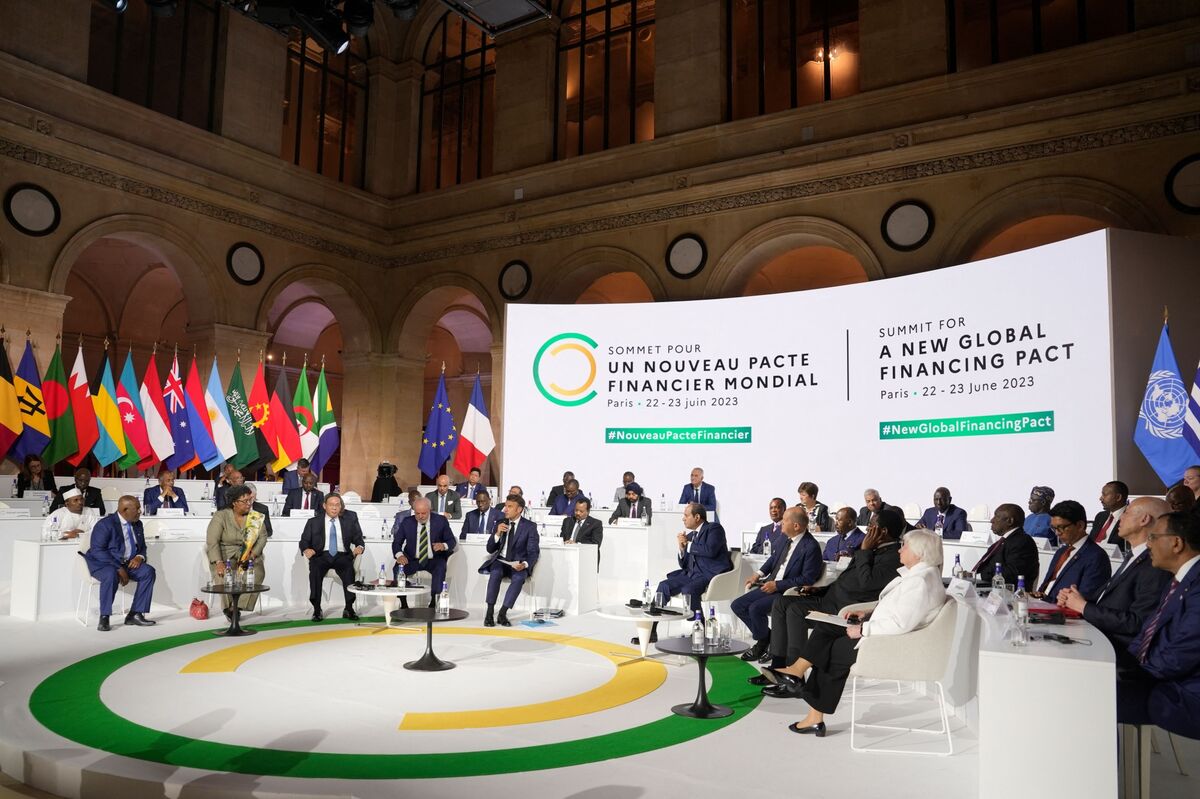The world needs a ‘financial systems transition’ to swiftly and adequately mobilize funding for mitigation and adaptation
Around 1,500 people, including 40 world leaders, gathered in Paris recently for the “Summit for a Global Finance Pact” to discuss pressing global issues such as climate change, global crises, and sustainable development. The Summit’s agenda was informed by the 2022 Bridgetown Initiative to reform the global financial system and address debt, climate, and cost-of-living crises.
A global problem, fiercer regional impact…
Around the world, nations face a variety of climate-related problems such as droughts, floods, desertification, and the loss of biodiversity. However, the summit emphasized the significance of identifying and attending to the particular requirements of vulnerable regions, such as Africa and making sure that climate support and financing mechanisms are tailored to their particular needs. After all, these regions are disproportionately affected by climate change, traceable arguably to scope three emissions from the global north. Sadly, the increasing severity of climate change is causing these countries to accumulate more debt to cope with its impacts, resulting in a dangerous cycle known as the climate debt trap. Breaking this cycle was a key priority for summit participants, especially those from vulnerable regions. It was therefore a step in the right direction when Ajay Banga, President of the World Bank, disclosed the institution’s plans to enhance countries’ ability to redirect their lending portfolio towards financing emergencies. The bank also aims to incorporate innovative insurance options like catastrophe insurance into its lending framework.
The transition calls for new financing…
The summit emphasized the importance of mobilizing climate finance to assist hard-pressed countries in their efforts to mitigate and adapt to climate change given that adequate funding is required to transition to a low-carbon economy, invest in renewable energy infrastructure, improve climate resilience, and address climate-related socioeconomic challenges. Several significant announcements were made in this regard, including by Banga who promised to implement Climate Resilient Debt Clauses, also known as “pause clauses,” which would provide debt relief to countries experiencing crises or disasters.
Echoes of past promises…
Of course, the Summit would not be quiet on past commitments as the unfulfilled promise of developed countries to spend $100 billion annually in developing countries to reduce emissions by 2020 was raised. The overwhelming financial burden of climate change mitigation for African nations makes this fund essential. According to the 2021 United Nations Environment Programme (UNEP) Adaptation Gap Report, the yearly climate change adaptation expenses in developing countries are estimated to be around $70 billion. This figure may rise to $140-300 billion by 2030 and $280-500 billion by 2050. For instance, Somalia will need about $55.5 billion from 2021 to 2030, and Ethiopia will need $316 billion to implement their Nationally Determined Contributions (NDCs). Sadly, according to the OECD, only $83 billion will have been provided and mobilized by developed countries as of 2020, falling short of the $100 billion annual commitment. Developed countries have a responsibility to swiftly address this broken promise even as they continue to be culpable on scope three emissions.
New partnerships required…
There was also the call on African institutions and nations to strengthen their partnership with their Western counterparts and also improve their credit integrity. Considering the willingness of lending institutions to give African nations debt payment breaks, a window of opportunity has been created for the continent leaders to demonstrate worthiness in their efficient utilization of aid if they must motivate their Western counterparts to keep up with their commitments. The Summit highlighted Africa’s vulnerability to climate change and the need for immediate action. The critical issue was vulnerable African countries’ access to finance to strengthen their capacity to mitigate climate change crises. By addressing this issue, the international community can help Africa combat climate change, promote sustainable development, and strengthen resilience.
Found it interesting and would like more in the mail?




